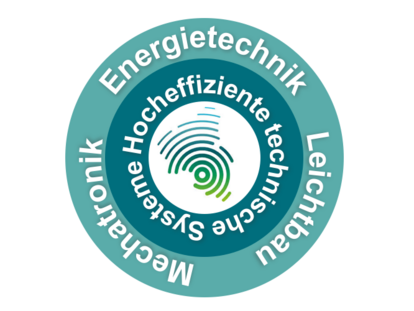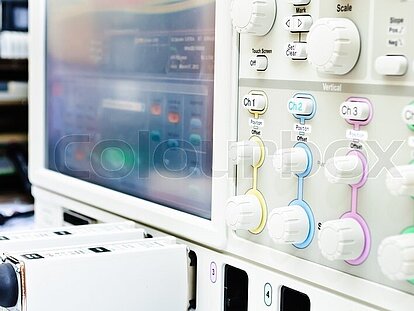Research Area: Energy
The implementation of the Energiewende is one of the central topics of the Federal Government, which is crystallized, among other things, in the 6th Energy Research Program. The efficient conversion, transfer and use of energy plays a key role in this. In the field of efficient energy conversion, the main focus is on regenerative energies in both the electricity and heat sectors. Here are questions of efficiency increase up to the use of storage as an interface to the transmission system to answer. Required technologies and competences are above all in the field of lightweight construction. In efficient transmission, the use of new materials, such as high-temperature superconductors (HTS), and the optimization of the operation of transmission systems occupy a prominent position. Of particular importance is the Energy Industry Act, which sets standards for the economy, ecology and security of supply. Special attention should also be given to the Digital Agenda 2014-2017, the Act on Digitalisation of the energy transition and the technical requirements of the EEG, which are reflected in the System Service Ordinance, among other things. Essentially, tools for simulation and efficient optimized operation of transmission systems are used here. The efficient use of energy is the focus of attention the time-tightening energy efficiency guidelines of the European Union and national regulations. Key topics include electromobility, smart home and Decarbonization of households. Of particular importance is the consideration of the entire system from transformation, transmission and use. Only by coordination and smooth interaction of the components can be operated in terms of maximum efficiency optimized overall system. This results in the following possible project priorities in the research area:
Tools
- Development of simulation models for the simulation of supply systems
- Optimization and further development of suitable Scada systems
- Architecture of a secure IT infrastructure for the efficient operation of the entire system
- Systems for data acquisition and processing in critical infrastructure
Technologies and components
- Efficient energy transfer through the use of HTS
- Lightweight construction with the aim of reduced energy consumption of vehicles
- Increasing the fuel pressure in common-rail systems
Systems
- Development and operation of off-grid systems
- Energy self-sufficient living
- Operation, standardization and protection of ICT systems in power engineering
The necessary networking of tools, technologies and components to an optimized overall system requires close cooperation between all colleagues involved between the individual projects.
Contact HTS "Energy"

Dekan FB AING, Fachausschuss Studium und Lehre AING, BAföG Beauftragter FB AING, Digital Engineering, gemeinsamer Ausschuss mit IMST, Fachbereichsrat AING
- +49 631 3724-2293karsten.gloeser(at)hs-kl(dot)de
- Campus Kaiserslautern
- Room F2.025







